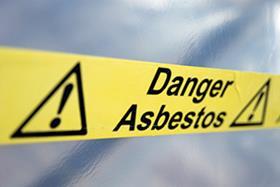Around £30m a year could be awarded to mesothelima victims after new law passed

The government will set up an asbestos compensation scheme that could award around £30m a year to mesothelioma victims, after the House of Commons passed the Mesothelioma Bill into law this week.
The scheme will award compensation to mesothelioma victims who have contracted the disease from exposure to asbestos at work, but are unable to identify a liable insurer or employer due to the long period between the disease’s contraction and diagnosis.
The effects of mesothelioma, a type of cancer that develops in the lining of internal organs, peak 30 to 40 years after contraction, leading to late diagnosis of victims.
Mesothelioma victims are often unable to identify a liable employer or insurer as the organisations may no longer exist in the same form or at all, or full records may not have been kept.
Construction employers are set to be represented in a technical committee that will be set up to arbitrate on the eligibility of mesothelioma cases, after lobbying from parties including the National Federation of Builders (NFB).
The NFB lobbied for employer representation on the technical committee to ensure builders are not unfairly left open to liabilities which should be covered by the scheme.
An NFB spokesperson said: “We’re confident that reassurances given by ministers during the Mesothelioma Bill amendment debate will ensure that employers have a voice in insurance disputes.”
Monitoring will partly be provided by the Employers’ Liability Tracing Office, minister Mike Penning told the Commons.
NFB chief executive Julia Evans said: “I am pleased that this Bill effectively recognises the devastating effects of mesothelioma on victims, but also goes some way to address concerns from employers.
“Without employer representation in disputes, decisions reached may well not reflect the reality of cases where insurance exists but the evidence is not clear.
“Continued cooperation with the government and insurers will be key to ensuring that employers receive a fair hearing in future disputes.”



























No comments yet